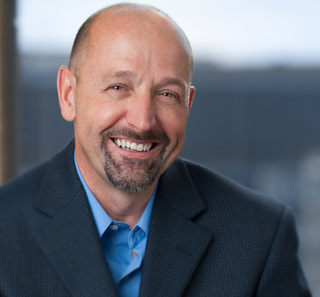President's Blog
Ending Joblessness One Person At A Time

By Jean-Michel Giraud, President & CEO, Friendship Place
Joblessness and homelessness go hand in hand for so many in our country.
This is why Employment First (AKA Job First) makes sense for so many disconnected people out there who are having a hard time moving forward with their job searches as they receive assistance from traditional vocational programs.
Employment First programs are effective because they assume employability, meaning that they look to everybody as being employable. The notion that everybody has a skill-set is empowering and helps build self-confidence in applicants who have been fighting an uphill battle from street, shelter and double-up situations, none of which is conducive to a successful job search.
In Employment First, the financial situation is stabilized to the best of the program’s ability from the beginning so the person can look beyond the immediate crisis and put more energy toward the search. Soft-skills training is expedited and applicants meet employers as soon as possible.
In traditional programs, the focus is on teaching employment skills. This takes time. The first interview can take weeks or months. As a result, sizeable resources are extended and participants spend a lot of time in classes they could do without as Employment First outcomes show for a large number of the job seekers we meet.
Imagine being “taught” how to work when you have previous experience in the workplace just because your financial circumstances have made you homeless. The message is simply disempowering.
Friendship Place developed AimHire, our Employment First Program, in the aftermath of the 2008 crisis. In meetings everywhere, people were saying there were no jobs and no affordable housing left. As it turned, there were jobs but you had to get really good at helping people get them.
In the last five years, AimHire has placed well over 500 people in jobs ranging from service positions to IT …the program even placed an attorney. The housing resources have come from relationships we have developed with private landlords. These relationships have proven long lasting for the most part and have even helped us launch a Rapid Rehousing Program.
When you think about it, one thing we don’t have in this process is time. We don’t have time because the time we’re using is not ours. It belongs to our participants and we should be especially mindful not to waste it. When you’re sleeping rough and not sure where you’re going to find food, you have no time to wait. This is why working quickly and effectively is key.
Vocational programs that hold people in classrooms for long periods of time should probably reflect upon this. How can someone concentrate on training content under such circumstances?
The conversation on employment is changing in this country for people experiencing homelessness or on the brink. It has become obvious to many that, in order to end homelessness, we need to change our approach to job placement. Hires should not be the results of protracted processes. They should take place as quickly as possible.
There was a time when people living in homelessness had to “earn” their housing. Then we realized that removing all barriers to housing using the Housing First model was the most humane and effective way to work. This means, for instance, that housing is no longer contingent upon maintaining sobriety or engaging in mental health treatment. Now, it is time for the system to remove barriers to employment and embrace Employment First.
Employment First will enhance results in homeless services. At this point, many programs operate in a way that seems contradictory to their actual goals. In human services, we strive to achieve outcomes. In this case, the outcome is clearly the job placement. So, why are so many programs spending so much time on outputs (the activities that lead to the outcome)?
Employment First is transformational. As we mainstream it into the service system, it has the potential to move the entire homeless services forward by guaranteeing that many more people get jobs in a timely manner so they can leave homelessness sooner.
Read this post on the Huffington Post website  About the author: A leading voice in the effort to combat homelessness with innovative solutions, Jean Michel has been been a contributor for the Huffington Post for since 2012.
About the author: A leading voice in the effort to combat homelessness with innovative solutions, Jean Michel has been been a contributor for the Huffington Post for since 2012.






